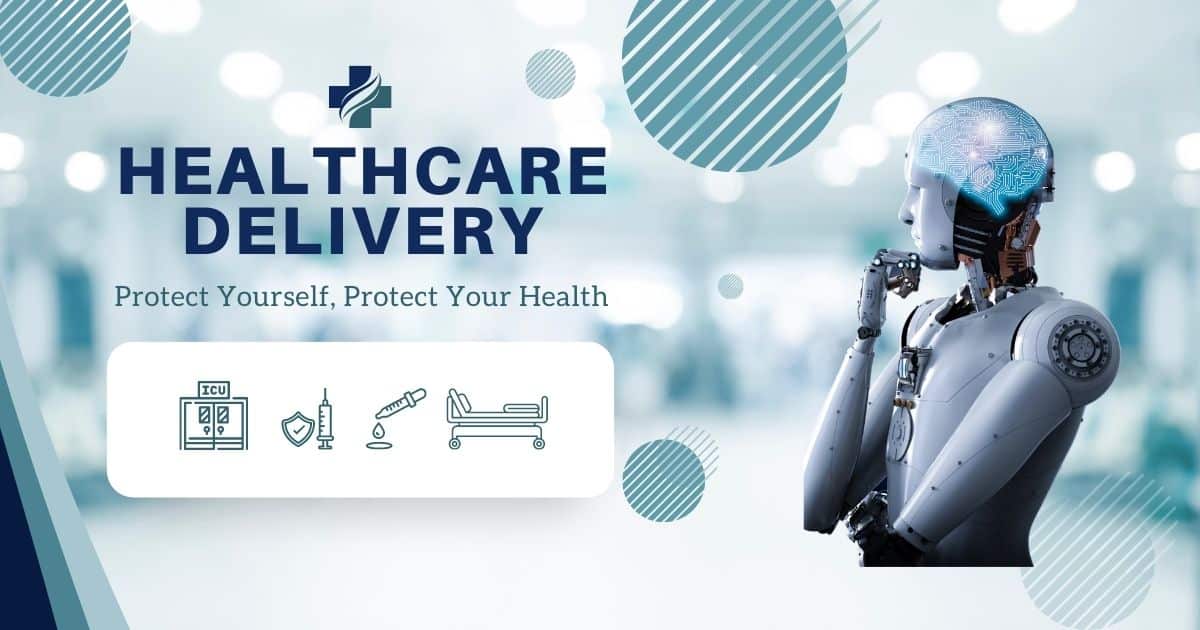Introduction
In today’s rapidly progressing world, the landscape of healthcare delivery has undergone an awe-inspiring transformation. Technological breakthroughs, patient-centric philosophies, and emerging hurdles have reshaped the way we provide healthcare delivery, ushering in an era abundant with possibilities and intricacies.
Grasping the Essence of Contemporary HealthCare Delivery
At its core, contemporary healthcare delivery refers to the method of administering medical care, treatments, and interventions to individuals while focusing on optimizing patient outcomes and experiences. In contrast to traditional models, modern health care places a strong emphasis on harnessing cutting-edge technologies, personalized methodologies, and data-driven decision-making.
Revolutionary Technological Marvels in HealthCare
A driving force behind the evolution of delivery in healthcare is undoubtedly technology. From the realm of telemedicine to the realm of robotic surgeries, technological breakthroughs have catalyzed a revolution in the manner in which medical services are rendered. For instance, telemedicine allows patients to remotely connect with healthcare professionals, breaking geographical barriers and enhancing accessibility to medical care, particularly in rural or underserved areas.
Robotic surgeries, on the other hand, have elevated precision and reduced invasiveness, leading to swifter recovery periods and enhanced patient outcomes. The integration of electronic health records (EHRs) streamlines patient information, granting healthcare providers access to comprehensive medical histories. This mitigates the risk of errors, thereby enhancing care coordination.
A Patient-Centric Paradigm Shift in Approach
A patient-centric approach entails customizing treatment plans and interventions based on individual preferences, values, and requirements. This philosophy recognizes the uniqueness of each patient and their potential distinct responses to various treatments.
By actively involving patients in the decision-making process, healthcare providers empower them to assume an integral role in managing their health. This collaborative partnership fosters a sense of responsibility and ownership, culminating in improved treatment adherence and overall well-being.
The Dynamic Role of Data and Analytics
Data has emerged as a potent tool in modern healthcare delivery. The availability of extensive datasets and advanced analytics empowers healthcare providers to extract insights, predict trends, and make well-informed decisions. By dissecting patient information, healthcare professionals can discern patterns and identify risk factors, facilitating early intervention and preventative measures.
Moreover, data-driven care plays a pivotal role in managing population health. Healthcare organizations can discern health trends within communities, allocate resources judiciously, and devise targeted interventions to address specific health concerns.
Navigating the Complexities of HealthCare Services Challenges
Amidst the multitude of advantages that technological advancements bring, they simultaneously introduce challenges. Security and privacy of patient data have surged to the forefront as paramount concerns, given the storage of sensitive information within electronic health records and digital platforms. The imperative of robust cybersecurity measures is underscored to safeguard patient confidentiality and thwart unauthorized access.
Furthermore, healthcare inequalities persist as a substantial challenge. Despite technological strides, not all individuals have equitable access to the modern delivery of healthcare. Socioeconomic factors, geographic location, and resource constraints can create barriers impeding access to quality medical services. Addressing these disparities necessitates concerted efforts from healthcare providers, policymakers, and society at large.
Paving the Path Forward: Envisioning Healthcare Services Future
As the trajectory of HealthCare services advances, the path ahead entails achieving equilibrium between technological advancements and empathetic, patient-centered care. Embracing innovations such as telehealth, AI-fueled diagnostics, and personalized treatments augurs a future with enhanced health outcomes and enriched patient experiences.
Additionally, surmounting challenges encompassing data security and healthcare disparities mandates a collaborative approach. The implementation of robust cybersecurity protocols and the fostering of initiatives that champion equitable access to care to ensure the benefits of modern healthcare delivery reach every stratum of society.
Culmination: Embracing Healthier Horizons
The orchestration of modern delivery in healthcare represents an intricate amalgamation of technological wonders, patient-centric philosophies, and a resolute stance in confronting challenges head-on. As we traverse the intricacies of this evolving terrain, the focal point remains unwaveringly fixed on ameliorating patient outcomes, augmenting care accessibility, and nurturing a world teeming with well-being for future generations. Through a fusion of innovation, compassion, and collaborative endeavors, the odyssey of delivering modern health care unfurls a path toward a brighter and healthier future.
Expert Answers: Addressing Your Healthcare Delivery Questions
Q: How Can Telemedicine Improve Healthcare Accessibility?
Telemedicine facilitates remote consultations, enabling patients to connect with healthcare professionals regardless of geographical barriers. This technology-driven approach enhances access to medical care, especially in underserved or remote areas.
Q: What Impact Do Electronic Health Records (EHRs) Have on Care Coordination?
EHRs streamline patient information, allowing healthcare providers to access comprehensive medical histories. This improves care coordination, reduces errors, and ensures a holistic view of a patient’s health journey.
Q: How Does a Patient-Centric Approach Enhance Treatment Outcomes?
A patient-centric approach tailors treatments to individual preferences, fostering treatment adherence and engagement. This personalized strategy can lead to improved treatment outcomes and overall patient satisfaction.
Q: How Can Healthcare Delivery Bridge Socioeconomic Disparities?
Healthcare delivery can bridge disparities by focusing on preventive care, community outreach, and telehealth initiatives. These approaches enhance access to care and address healthcare inequalities.
Q: How Can Data Analytics Improve Population Health Management?
Data analytics identifies health trends within communities, enabling healthcare organizations to allocate resources effectively and design targeted interventions. This proactive approach enhances population health management and preventive measures.
Q: What Innovations Are Shaping the Future of Healthcare Delivery?
The future of healthcare delivery involves AI-driven diagnostics, personalized medicine, and innovative care models. These advancements aim to enhance patient experiences, improve outcomes, and revolutionize medical services.
You may also like:
Discover the Ultimate Health Hacks That Will Transform Your Life!
Follow us and subscribe to us!
